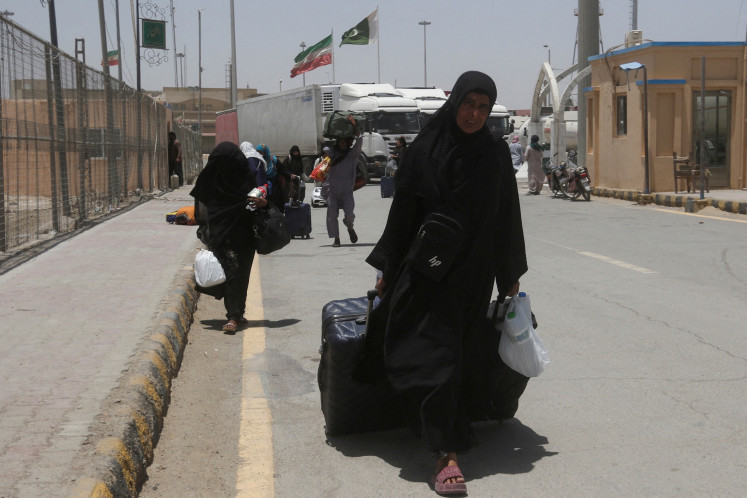Popular Reads
Top Results
Can't find what you're looking for?
View all search resultsPopular Reads
Top Results
Can't find what you're looking for?
View all search resultsRI ranks 108 in HDI, Norway best place to live: UN
Oil-rich Norway remains the best country in the world to live, while Indonesia still ranks outside the top 100 countries, according to the most recent UN human development index (HDI) report released on Thursday
Change text size
Gift Premium Articles
to Anyone

O
il-rich Norway remains the best country in the world to live, while Indonesia still ranks outside the top 100 countries, according to the most recent UN human development index (HDI) report released on Thursday.
According the UN Development Program’s website, Indonesia was ranked 108 — behind other Southeast Asian countries such as Singapore (27), Malaysia (57) and the Philippines (97), but above Vietnam (113).
Among Asia’s most populous nations, Indonesia was ranked above India (119) but behind China (89).
The assessment is a measure of wellbeing published by the UN Development Program (UNDP) for the past 20 years that combines individual economic prosperity with education levels and life expectancy.
Indonesia’s average life expectancy is 71.5 years while its per capita annual income stands at US$3,956. Singapore has an average life expectancy of 80.7 years and per capita income of $48,893 while Malaysia has 74.7 years and $13,926 in each category.
The UNDP placed Norway, Australia and New Zealand at the top and Niger — last year’s back-marker — the Democratic Republic of the Congo and Zimbabwe at the bottom.
Japan headed the field in life expectancy, at 83.6 years, with Afghanistan last at little more than half of that — 44.6 years. The tiny Alpine state of Liechtenstein had by far the highest per capita annual income — $81,011, 460 times higher than last-placed Zimbabwe on $176.
Overall, the index contained some significant changes near the top compared with last year, with the United States rising from 13th to fourth and Iceland — hard hit by the global financial crisis — plummeting from third to 17th.
Per capita gross national income, which includes aid and remittances, has been used instead of gross domestic product, while in education gross enrollment has been replaced by average years of schooling.
Due to difficulties in obtaining the required figures from some countries, only 169 of the 192 UN member states were graded. Absentees included North Korea.
Instead of year-on-year shifts, this year’s report focused on what it said were upward long-term trends, assessing developments in 135 countries since 1970.
“The overall message is actually quite positive,” Jeni Klugman, lead author of the report, told Reuters.
“What we find is that the world is much better off than it was,” including a doubling of incomes in real terms over 40 years.









